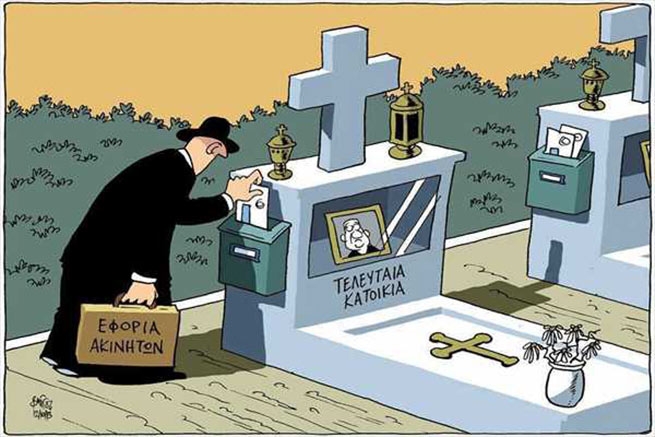The Hellenic Tax Authority has launched enforcement measures to collect debts after a sharp increase in the number of debtors recorded in September this year. It is assumed that the measures may affect more than 2 million taxpayers – 20% of the country’s population.
According to the latest data from ΑΑΔΕ, there are 2,020,050 debtors in the sights of the tax authorities that may be subject to enforcement action, and more than 2 million people either have small overdue debts or have not yet come to the attention of ΑΑΔΕ collection services. Based bankruptcy law, adopted in 2019 under pressure from the “troika of creditors”, the authorities are starting to confiscate movable and immovable property. It is reported that measures have already been applied to 1,387,239 debtors.
Confiscation of deposits
The seizure of bank accounts of debtors is in the first place in the activities of ΑΑΔΕ, since this process is carried out as quickly as possible. The notification is sent to the bank and, according to the law, it must freeze the debtor’s account. Attached to the seizure notice is a table for each debtor, indicating the type and amount of each debt, as well as the number and date of the certificate or details of the entry of the title document in the income ledger ΑΑΔΕ.
The application of the credit institution must be general for all debtors under the document of seizure and must be accompanied by confirmation of the movement of funds in the bank account of each debtor for a period of at least five (5) days before the date of delivery of the document of seizure and one day after this date, otherwise it is considered that no application has been made. The return of the amounts to the arresting agency is obligatory within 10 days after the application is submitted by the credit institution.
Exemptions in favor of third parties
Arrests in favor of third parties concern wages, pensions, rents and, in general, any amounts received by the debtor from another person or entity. In accordance with the Code for the Recovery of Public Revenues, the seizure in the hands of a third party of money belonging to a public debtor is carried out by the administrator of the Hellenic Tax Service by means of a seizure order, not communicated to the debtor, which contains:
- full name and surname, and VAT number, if any, of the debtor and the third party whose account has been seized,
- amount seized
- the debtor’s debt schedule or debt identification number in the application, which is a unique code number for each application request and must be associated with the schedule,
- date and signature of the owner.
With the decision to seize, the third person is obliged, within eight (8) days, to deposit the money due to the public debtor to the ΑΑΔΕ department that imposed the seizure or to the bank account of the state, and if it is movable property, then to hand it over to the notary or guardian indicated in the arrest warrant.
It should be noted that, according to the above bankruptcy lawthe state or banks can take away liquid property from the debtor – movable and immovable, and then put it up for auction without special warning to the debtor.
για λογαριασμό της τράπεζας προχώρησαν πρίν λίγο στο σπάσιμο της πόρτας της δημοσιογράφο. Ιωάννα Κολοβού, λόγω αδυναμίας αποπληρωμής ενός δανείου ύψους 15.000 ευρώ, pic.twitter.com/Ln3qNCil3G
— nikos christofakis (@christofakisN) November 21, 2022
Further, the property is sold to collection companies, and they throw the debtors out into the street. How this happens, the inhabitants of Greece have witnessed literally on Monday.







More Stories
Greece will not give Ukraine either S-300 or Patriot (video interview)
MP beat up his colleague in the Greek Parliament
EU Commission warns Greece and Cyprus against fraud